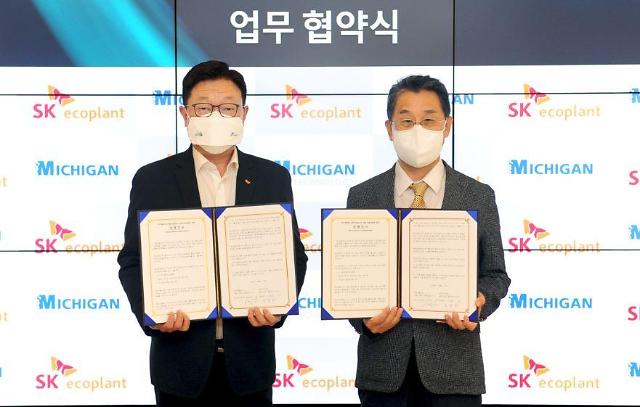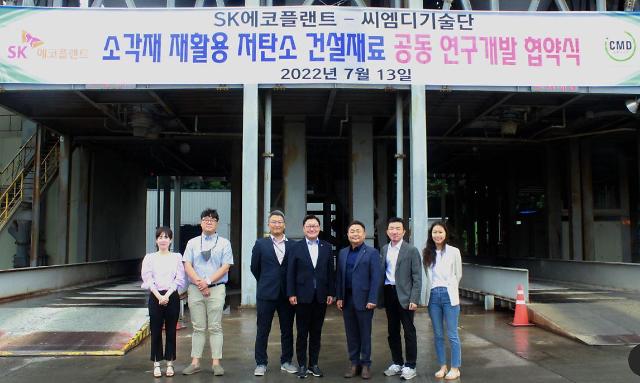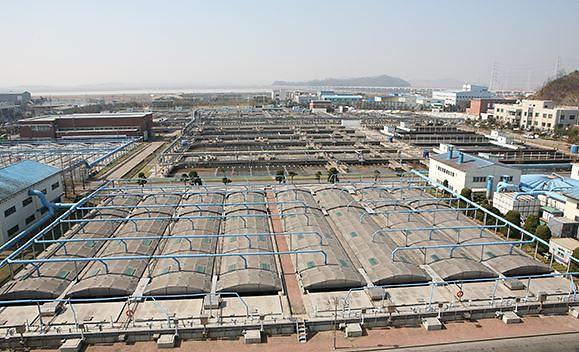
[Courtesy of SK ecoplant]
SEOUL -- SK ecoplant, a major waste management company affiliated with South Korea's SK Group, tied up with a domestic wastewater treatment company to demonstrate and commercialize electrochemical oxidation facilities using boron-doped diamond electrodes for the treatment of high-concentration wastewater that is difficult to decompose with microorganisms.
Electrochemical wastewater treatment has been in the spotlight for a long time due to its excellent pollutant removal efficiency, high economic efficiency, and simple structure. The method uses no chemicals and generates a very small amount of residue. Despite many advantages, there have been no demonstration cases in South Korea.
SK ecoplant and Michigan Technology will work together to demonstrate technologies for electrochemical oxidation (ECO) wastewater treatment using boron-doped diamond (BDD) electrodes which have very high purification efficiency and durability. BDD is a new type of diamond formed by adding boron in the process of diamond growth. BDD electrodes are usually made into thin films by chemical vapor deposition.
SK ecoplant and Michigan Technology would test the durability and efficiency of BDD electrodes through continuous demonstration for about a year. "We will continue our efforts to advance the environmental business by continuing to discover innovative technologies," SK ecoplant's Eco Lab Center head Kim Byung-kwon said in a statement on August 18.
High-pollution wastewater is difficult to decompose and purify with biological methods. A physicochemical method collects clean water by heating and evaporating wastewater using chemicals or fossil fuels, but its drawback is high processing costs and secondary contamination due to the generation of large amounts of sludge.
In electrochemical treatment, electrons are exchanged between wastewater and electrodes. Hydroxide radicals produced in the negative electrode directly decompose pollutants, and hypochlorous acid, which is produced when chlorine in wastewater meets water, can purify organic matter in wastewater once more.
Michigan Technology is responsible for equipment installation, operation, and efficiency tests. SK ecoplant is in charge of deriving optimal operating conditions and developing unmanned processes that combine artificial intelligence and digital technology.




